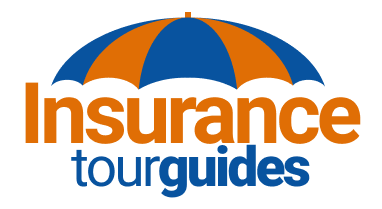What Is Usage-Based Insurance (UBI)?
Usage-Based Insurance (UBI), also known as pay-as-you-drive or pay-how-you-drive insurance, is a newer model of auto coverage that sets your premium based on actual driving habits instead of just demographics, location, or credit score. Insurers use telematics technology—via a mobile app or a plug-in device in your car—to monitor things like mileage, speed, braking, and even the time of day you drive.
If you’re a safe driver or don’t drive often, UBI could mean major savings.
How It Works
When you sign up for a UBI program, your insurer will track your driving data through one of the following:
-
Plug-in Devices: Installed in your vehicle’s OBD-II port
-
Smartphone Apps: Use GPS and accelerometers to gather data
-
Built-in Car Systems: Some modern cars transmit data directly to insurers
Key metrics insurers typically monitor:
| Metric Tracked | Why It Matters |
|---|---|
| Mileage | Less driving usually means lower risk |
| Speed | Frequent speeding can raise your premium |
| Braking Habits | Hard stops suggest risky driving |
| Time of Day | Night driving is riskier and costlier |
| Phone Usage | Distracted driving negatively impacts rates |
Types of UBI Programs
There are a few different formats for usage-based insurance:
-
Pay-As-You-Drive (PAYD): Charges are based primarily on mileage.
-
Pay-How-You-Drive (PHYD): Charges are influenced by driving behavior.
-
Mileage-Based Discounts: Offers a discount just for driving less, regardless of behavior.
Some companies combine PAYD and PHYD for a more tailored pricing structure.
Who Should Consider UBI?
UBI isn’t for everyone, but it can be a smart choice in these scenarios:
-
Low-Mileage Drivers: If you commute infrequently or work from home.
-
Safe Drivers: If you rarely speed or brake hard.
-
Young or New Drivers: UBI can lower high premiums by proving safe habits.
-
Urban Residents: If you drive less due to public transit access.
Pros of Usage-Based Insurance
-
Potential Cost Savings: Safe or infrequent drivers can score major discounts.
-
Personalized Premiums: You’re rated on how you actually drive, not assumptions.
-
Encourages Safer Driving: Seeing your score can motivate better habits.
-
Eco-Friendly: Reduces unnecessary driving, which helps the environment.
Cons of Usage-Based Insurance
-
Privacy Concerns: Some drivers are uncomfortable sharing real-time driving data.
-
Penalties for Risky Behavior: Unsafe habits can raise your rates.
-
Limited Availability: Not all insurers or states offer UBI programs.
-
Battery Drain and Glitches: Smartphone tracking can affect battery life and may not always be accurate.
Top Insurers Offering UBI
| Insurer | UBI Program Name | Key Features |
|---|---|---|
| Progressive | Snapshot | Offers discounts, but can raise rates |
| State Farm | Drive Safe & Save | Tracks mileage and driving behavior |
| Allstate | Drivewise | Rewards safe driving with cash back |
| Nationwide | SmartRide | Personalized discounts, no rate hikes |
| GEICO | DriveEasy | App-based monitoring |
How Much Can You Save?
Savings vary widely depending on your behavior and insurer. Some drivers save up to 30% or more, especially if they drive fewer miles or show consistently safe habits. However, some programs also allow for rate increases if risky behavior is detected.
Tips for Maximizing Your Discount
-
Drive Less: Combine trips and avoid unnecessary driving.
-
Avoid Hard Braking: Slow down gradually when possible.
-
Stick to Daylight Hours: Try to avoid night driving when possible.
-
Follow Speed Limits: Especially important for urban and highway driving.
-
Limit Phone Use: Use hands-free features or keep the phone out of reach.
Is UBI the Future of Auto Insurance?
UBI is gaining momentum as insurers push for more accurate, individualized risk assessments. With vehicle technology improving and consumers craving more control over their premiums, usage-based insurance may soon become the norm rather than the exception. Still, concerns about privacy and fairness remain, so adoption is likely to be gradual.
Bottom Line
Usage-Based Insurance rewards smart, safe, and conscious driving. If you don’t mind sharing a bit of your data and you already practice good driving habits, it might be one of the easiest ways to save on your auto insurance bill. As the market grows, expect more options—and potentially better deals—on the horizon.

